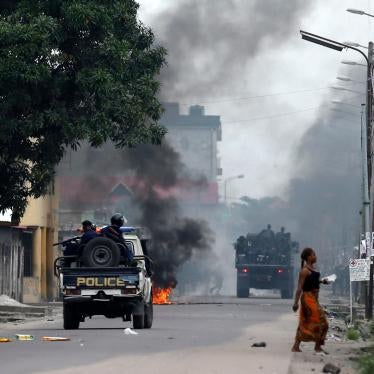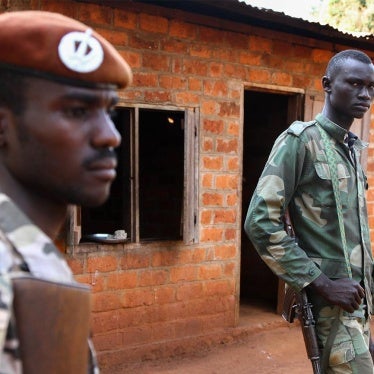Human Rights Watch called on African officials meeting tomorrow in Arusha, Tanzania, to impose a regional arms embargo on Burundi.
In a letter to Julius Nyerere, the former president of Tanzania and chief mediator in the peace negotiations concerning Burundi, the organization also called on Central African states to extend such an embargo to rebel forces battling the government of Burundi, and to request that the United Nations Security Council impose an international arms embargo on both sides. Such measures would also help address the problem of arms flights from Europe and Asia directly into Bujumbura, the capital of Burundi.
Diplomats have told Human Rights Watch that key members of the Security Council would endorse the idea of an international embargo on both sides in the civil war if regional states were to show strong support for it.
At the summit meeting tomorrow (Saturday), states neighboring Burundi—the Democratic Republic of Congo, Kenya, Rwanda, Tanzania, Uganda -- as well as Ethiopia are expected to discuss lifting the blanket trade sanctions that have been in force against Burundi since 1996.
"The trade sanctions haven't stopped the civil war, and they've imposed a lot of hardship on the population," said Joost Hiltermann, executive director of the Arms Division of Human Rights Watch. "But cutting off the arms supply could stem the pervasive human rights abuses that this war has inflicted on so many civilians."
Citing reports on recent human rights violations and arms supplies, Human Rights Watch emphasized the urgency of the need for an arms ban even if economic sanctions are suspended or even lifted.








